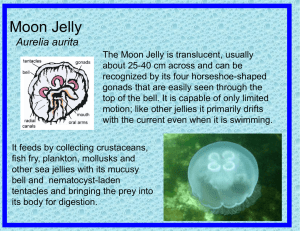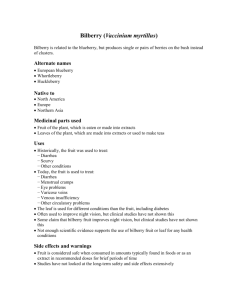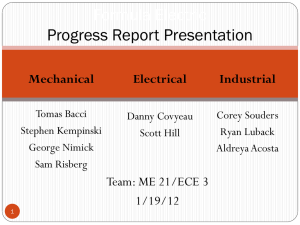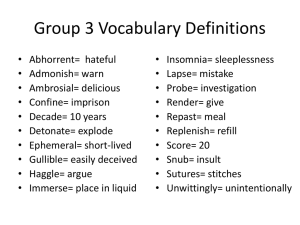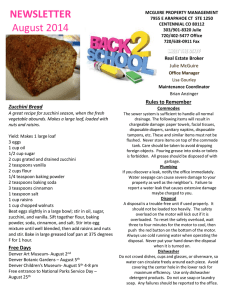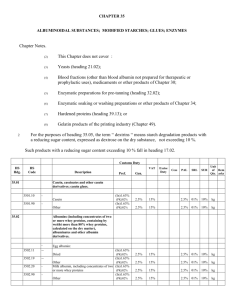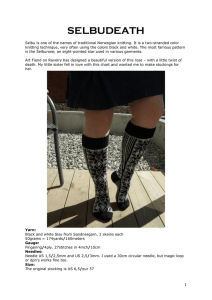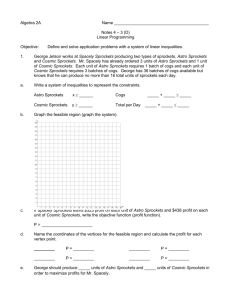I`ve made out a will-Simon Armitage
advertisement
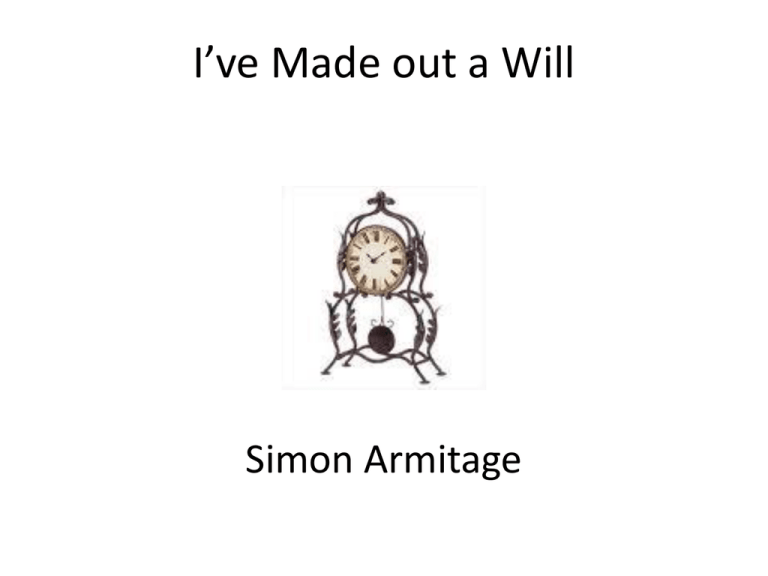
I’ve Made out a Will Simon Armitage I've made out a will; I'm leaving myself to the National Health. I'm sure they can use the jellies and tubes and syrups and glues, the web of nerves and veins, the loaf of brains, and assortment of fillings and stitches and wounds, blood - a gallon exactly of bilberry soup – the chassis or cage or cathedral of bone; but not the heart, they can leave that alone. They can have the lot, the whole stock: the loops and coils and sprockets and springs and rods, the twines and cords and strands, the face, the case, the cogs and the hands, but not the pendulum, the ticker; leave that where it stops or hangs. Title, Context & Themes From ‘Book of Matches’ (based on party game where a person strikes a match and has until the flame burns out to tell their life. The represents the match being struck. I've made out a will; I'm leaving myself to the National Health. I'm sure they can use the jellies and tubes and syrups and glues, the web of nerves and veins, the loaf of brains, and assortment of fillings and stitches and wounds, blood - a gallon exactly of bilberry soup – the chassis or cage or cathedral of bone; but not the heart, they can leave that alone. They can have the lot, the whole stock: the loops and coils and sprockets and springs and rods, the twines and cords and strands, the face, the case, the cogs and the hands, but not the pendulum, the ticker; leave that where it stops or hangs. Themes Life and death and dealing with death. Form, Rhythm & Rhyme With 14 lines it takes the form of an atypical sonnet. The connotations of a sonnet are generally that of love. I've made out a will; I'm leaving myself to the National Health. I'm sure they can use the jellies and tubes and syrups and glues, the web of nerves and veins, the loaf of brains, and assortment of fillings and stitches and wounds, blood - a gallon exactly of bilberry soup – the chassis or cage or cathedral of bone; but not the heart, they can leave that alone. The poem consists of 3 sentences, quickening the pace. The poem also acts as a list, as the speaker sets out the terms of their will. Some use of rhyme (including assonance and internal rhyme) maintains fast pace; it adds a mechanical quality which fits into the ideas of the poem. They can have the lot, the whole stock: the loops and coils and sprockets and springs and rods, the twines and cords and strands, the face, the case, the cogs and the hands, but not the pendulum, the ticker; leave that where it stops or hangs. Description of heart is literally separate from the rest of the poem; illustrating a physical and emotional detachment from the rest of the body. The almost child-like simplification of vital organs and body parts is somewhat lighthearted, suggesting the speaker doesn’t place much importance on them. It could also show how simple the body becomes when someone is dead; simply an assortment of things. ‘chassis’ (the body of a car) is juxtaposed with ‘cathedral’; the body is seen both as something mechanical and linked with something holy. Imagery-Body Parts I've made out a will; I'm leaving myself to the National Health. I'm sure they can use the jellies and tubes and syrups and glues, the web of nerves and veins, the loaf of brains, and assortment of fillings and stitches and wounds, blood - a gallon exactly of bilberry soup – the chassis or cage or cathedral of bone; but not the heart, they can leave that alone. They can have the lot, the whole stock: the loops and coils and sprockets and springs and rods, the twines and cords and strands, the face, the case, the cogs and the hands, but not the pendulum, the ticker; leave that where it stops or hangs. ‘loaf’ could be in reference to the colloquialism ‘using your loaf’ ; alternatively it could put importance on the brain as bread is the staff of life The imagery of the clock links in with time. ‘Stops’ indicates the point at which life ends. Language & Tone Indication that the speaker has not always taken care of their body ‘cage’ has connotations of being a prisoner or trapped in one’s body. The heart is given special significance and importance, perhaps as it is commonly linked with feelings. I've made out a will; I'm leaving myself to the National Health. I'm sure they can use the jellies and tubes and syrups and glues, the web of nerves and veins, the loaf of brains, and assortment of fillings and stitches and wounds, blood - a gallon exactly of bilberry soup – the chassis or cage or cathedral of bone; but not the heart, they can leave that alone. They can have the lot, the whole stock: the loops and coils and sprockets and springs and rods, the twines and cords and strands, the face, the case, the cogs and the hands, Armitage juxtaposes a selfless act and casual tone with a selfish stubbornness to keep his heart. This suggests conflicting emotions, perhaps showing that the speaker hasn’t fully come to terms with the idea of death and wants to keep a small part of themselves. but not the pendulum, the ticker; leave that where it stops or hangs. Associating their body with a machine could be seen as the speaker accepting death as something natural and not tying emotions to it. Compare Poem Compare Contrast Anne Hathaway, Carol Ann Duffy Both 14 line sonnets with themes of death. Dealing with the death of someone else. ‘Anne Hathaway’ uses more lyrical and romantic imagery; shows admiration of the deceased, whereas in ‘I’ve made out a will’ the body is seen as a machine. On My First Sonne, Ben Johnson Themes of death and coping with loss. Both accept idea of death: Johnson sees it as ‘fate’; the speaker in Armitage’s poem uses the metaphor of a clock for his heart, perhaps suggesting that people are allocated a certain amount of time to live. ‘On My First Sonne’ deals with the death of someone else. The speaker also appears grieve the loss more. Both 14 line atypical sonnets expressing a single idea. Both use a lot of imagery and description to convey the subject matter. Both fairly fast-paced (‘Patrolling Barnegat consists of only one sentence). Deal with different subjects: one death, the other a storm. ‘Patrolling Barnegat’ is on 3rd person narrative. Tone: ‘Patrolling Barnegat’ is more dramatic, whereas Armitage uses every day objects to make the situation appear ordinary. Patrolling Barnegat, Walt Whitman Whereas ‘I’ve made out a will’ simplifies vital organs and other body parts to the level of everyday objects, Johnson describes his son as ‘his best piece of poetrie’. Again, this demonstrates a more romantic view of life and death.

